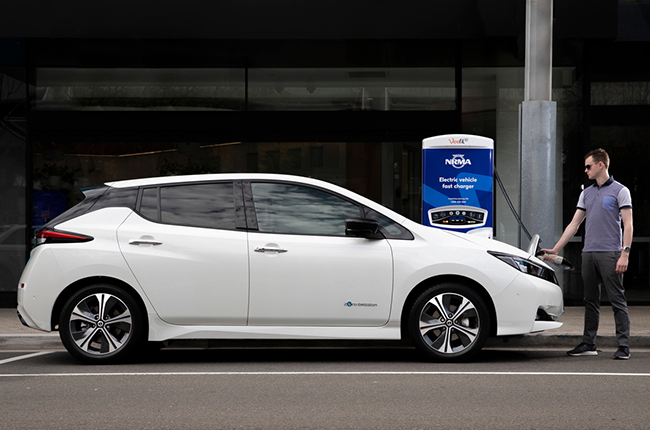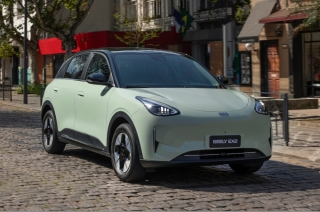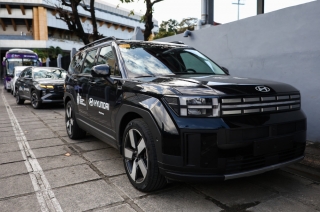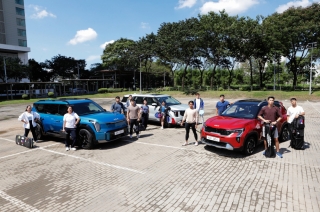
When it comes to vision, Nissan has tons of it. The Japanese automaker is planning to make an ecosystem for electric vehicles (EV), with a plan designed to utilize electric batteries’ ability to store and share energy; for example, powering a home or a business.
However, it isn’t as simple as that. In fact, the plan is so wide-scoped that describing it as an ‘ecosystem’ sounds just about right. Nissan is trying to make its EVs universally connected by devising its own energy systems for battery charging, energy sharing, and feeding energy back to grids. Not only that, the Japanese carmaker, is also looking forward to reusing electric car batteries. All that was mentioned are part of the Nissan Energy plan.

The plan is already in the works with programs in the US, Japan, and Europe of creating an ecosystem around its product range of EVs, such as the LEAF – all under the umbrella of Nissan Intelligent Mobility strategy.
“Nissan Energy will enable our customers to use their electric cars for much more than just driving – now they can be used in nearly every aspect of the customer’s lives. Our Nissan Intelligent Mobility vision calls for changing how cars are integrated with society, and Nissan Energy turns that vision into reality.”
There are three key initiatives in the Nissan Energy plan, which are mainly focused on energy supply, sharing, and storage. Nissan believes these three will set new standards for connecting vehicles to energy systems. Under the Energy Supply initiative, Nissan aims to provide connected charging solutions to customers at home, on the road, and even to their end destination. The initiative will assist Nissan owners by verifying whether the wall boxes or electrical sockets can be safely connected to their Nissan vehicle.
The Energy Share initiative, on the other hand, aims to transform Nissan EVs as mobile energy storage devices that could connect with society’s infrastructure and share its energy to power homes and business buildings. This could also enable the car to act as virtual power plants by sharing its power to local energy grids for efficient energy management. Meanwhile, the Energy Storage initiative is designed to extend or add a ‘second life’ to the EV’s battery.
With all that’s stated, we could be off to a future where owning a Nissan EV is one of the most practical ways to go. If you’re quite as interested as we are, all we could do is wait and stay tuned on the development of this project, and its arrival to the Philippine market.
Latest News
-
Geely’s EX2 EV headed to Australia — is a Philippine launch possible? / News
The Geely EX2 is confirmed to go on sale in Australia in 2026. Could a launch in the Philippines also be on the cards?
-
Hyundai Motor Philippines is the FIFA Futsal Women's Teams' official mobility partner / News
Hyundai Motor Philippines strengthened its partnership with FIFA through its support of the FIFA Futsal Women's Teams.
-
Kia Philippines backs EJ Obiena as Atletang Ayala continues championing Filipino athletes / News
Kia Philippines strengthens its support for EJ Obiena, backing the Olympian with dedicated mobility at home and abroad.
Popular Articles
-
Electric Vehicles in the Philippines for under P1 million
Jerome Tresvalles · Aug 19, 2025
-
Top 3 Cars For Every Lifestyle—What Cars Are Right For You? | Behind a Desk
Caco Tirona · Apr 24, 2024
-
5 Tips to Maximize Fuel Efficiency
Jerome Tresvalles · Sep 09, 2024
-
Five driving habits that are draining your fuel tank
Jerome Tresvalles · Jun 24, 2025
-
Can engine braking harm your engine?
Jerome Tresvalles · Sep 11, 2025
-
Do electric cars even need maintenance?
Jerome Tresvalles · Oct 23, 2024
-
Best vehicles for an active outdoor lifestyle
Shaynah Miranda · Jul 25, 2024
-
How to drive different types of vehicle transmissions
May 23, 2024
-
5 easy ways to keep your car interior clean
Allysa Mae Zulueta · Nov 15, 2021
-
How to survive Metro Manila traffic
Earl Lee · Aug 16, 2022



